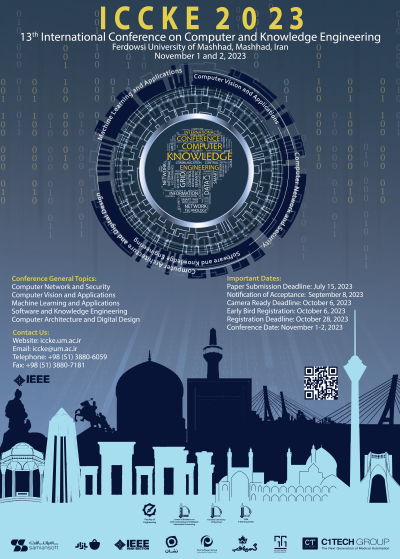0% Complete

Authors :
Keywords :
Abstract :
List of archived papers
Shanker J Gambhire - Malligunta Kiran Kumar - Hossein Shahinzadeh - Mohammad-hossein Fayaz-dastgerdi - B. Srikanth Goud - Ch.Naga sai Kalyan
Fatemeh Mansouri Hanis - Hamidreza Khoshvaghti - Mehdi Teimouri - Hadi Veisi
Hossein Mohammadi Firouzjaei - Javad Zeraatkar Moghaddam - Mehrdad Ardebilipour
Mohammad Dehghani - Behrouz Bokharaeian - Zahra Yazdanparast
Mona Sadat Mohsenzadeh - Ghosheh Abed Hodtani
Ali Farzipour - Omid Nejati Manzari - Shahriar B. Shokouhi
Moein Sartakhti.salimi@gmail.com - Mohammad Javad Maleki Kahaki - Ahmad Yoosofan - Seyyed Vahid Moravvej
Anahita Hosseinkhani - Behnam Ghavami
Zerek Sediq Hossein - Rojiar Pir Mohammadiani - Saadat Izadi




